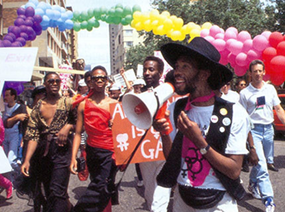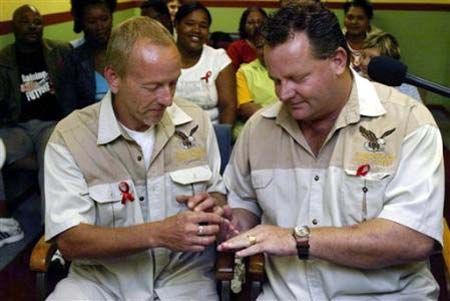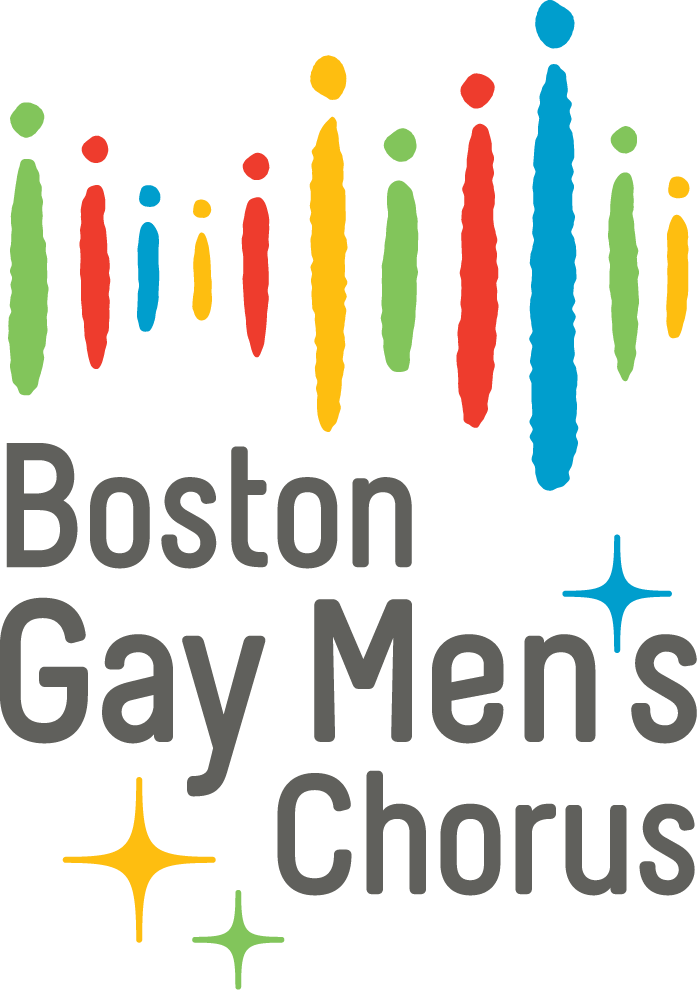Like the United States, the progress toward LGBT legal and social equality in South Africa has been a long struggle — and it continues to this day, as the country works to combat widespread anti-LGBT discrimination and violence. Here is a timeline of major events in South Africa’s LGBT history:
1907: Taberer Report Published
J. Glenn Leary, a magistrate, and Henry M. Taberer, a member of the Native Affairs Department, are tasked with determining levels of “unnatural practices” among African men working in mine compounds near Johannesburg. The Report finds that homosexual activity is occurring among some mine workers and pathologizes such activity as “disgusting” and “loathsome.” (cited in Epprecht, 129).
January 1966: Forest Town Raid
Police raid a party in Forest Town, an English-speaking suburb of Johannesburg. Nine men are arrested for “masquerading as women”. The Police findings are the basis for anti-homosexuality legislation proposed in the House Assembly in 1967.
May 1969: Immorality Amendment Act
Section 20A criminalizes all sexual acts between men at any event where more than two people are present (the “men at a party” clause). Raises age of consent for male homosexual activity from 16 to 19 (sodomy is already criminalized).
1971–1989: The Aversion Project
Members of the South African Defence Force identified as homosexual were subject to medical torture, called the “Aversion Project,” to “cure” them of their homosexuality. Techniques included chemical castration and electroshock therapy.
1982: GASA (Gay Association of South Africa) founded.
The first major gay organization in South Africa — a white, non-political organization. GASA was expelled from the International Gay and Lesbian Association in 1987 for its refusal to condemn Apartheid.
1988: GLOW (Gay and Lesbian Organization of the Witwatersrand) Founded
This explicitly political and racially inclusive organization allied itself with anti-apartheid groups like the African National Congress and United Democratic Front.
October 1990: GLOW holds the first pride parade in South Africa (Joburg Pride)

May 1996: After successful lobbying by LGBT activists, South Africa in the post-apartheid era adopts the first constitution in the world to explicitly outlaw discrimination based on sexual orientation.
October-November 1998: Ban on sodomy ruled unconstitutional
Judicial decision in National Coalition for Gay and Lesbian Equality v. Minister of Justice declares criminalization of sodomy, “unnatural acts”, and section 20A of Immorality Amendment Act to be in violation of the nondiscrimination clause of the Constitution.
The 1998 Employment Equity Act 55 becomes law, prohibiting employment discrimination based on sexual orientation and HIV status, among other categories.
Pioneering gay activist and GLOW founder Simon Nkoli dies of an AIDS-related illness
September 2002: Same-Sex adoption rights established
The Constitutional Court rules that same-sex partners must be allowed to jointly adopt children and adopt each other’s children in Du Toit v. Minister of Welfare and Population Development.
March 2003: Same-sex parental rights established
The Constitutional Court rules that lesbian parents of a child must be legally considered the child’s parents in J and B v. Director General, Department of Home Affairs.
March 2004: Individuals allowed to change their legally recognized sex.
Alteration of Sex Description and Sex Status Act takes effect, allowing trans and intersex people to legally change their gender.
December 2005: Constitutional Court tasks Parliament with redefinition of marriage
In Minister of Home Affairs v. Fourie, the Constitutional Court rules that South Africa’s Marriage Act is unconstitutional because it does not allow same-sex couples to marry. The Court gives the Parliament one year to alter the law.
November 2006: Same-Sex Marriage Legalized
Acting President Phumzile Mlambo-Ngcuka signs the Civil Union Act of 2006, which includes the legalization of marriage.
December 2006: First legal same-sex marriage is performed.
Vernon Gibbs-Halls and Tony Halls-Gibbs are the first couple to be married on December 1, 2006.

2007–08: Age of consent is equalized
The Criminal Law Amendment Act of 2007 equalizes age of consent at 16 (previously had been 16 for heterosexuals, 19 for gay people). Constitutional Court confirms the legislation in 2008.
December 2010: Gay Pride Flag Unveiled in Cape Town
A South African Gay Pride Flag, designed by Eugene Brockman, is flown for the first time at the Mother City Queer Project costume party in Cape Town. Though not an official national symbol, the flag has been registered at South Africa’s Bureau of Heraldry as the heraldic flag of the GLBTI Association of South Africa.

March 2011: National Task Team established to address hate crimes against LGBT people.
April 2011: LGBT activist Noxolo Nogwaza is raped and murdered in an anti-LGBT hate crime, as determined by Human Rights Watch and Amnesty International.
May 2014: Lynne Brown becomes first openly gay cabinet member in South Africa — and the first in any African government.
2014: South African National Blood Service ends discrimination against gay men.
Instead, SANBS implements a policy favoring donations from individuals in long-term, monogamous relationships, regardless of sexual orientation.
2016: September: The South African government declares Steven Anderson, an anti-LGBT pastor from the US who had been proselytizing in South Africa, an “undesirable person” and bars him and his associates from entering the country.
November 2016: The “Hate Crimes against Lesbian, Gay, Bisexual and Transgender (LGBT) People in South Africa, 2016,” is released, revealing disturbing levels of violence against the LGBT community. Among the findings: 41 percent of 2,130 survey participants reported knowing someone who had been murdered because of their sexual orientation or gender identity. Forty-four percent of respondents said they had experienced anti-LGBT discrimination within the past two years.
